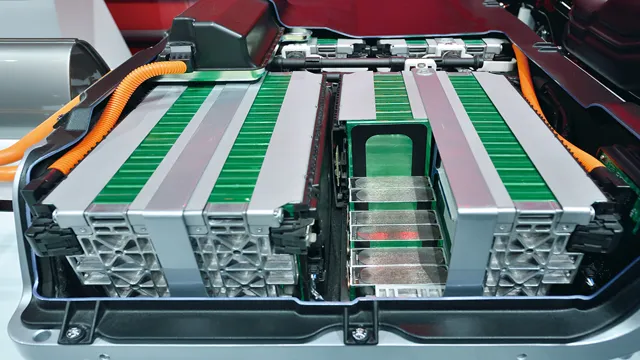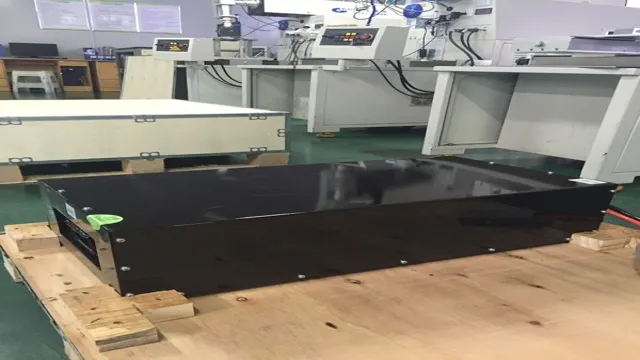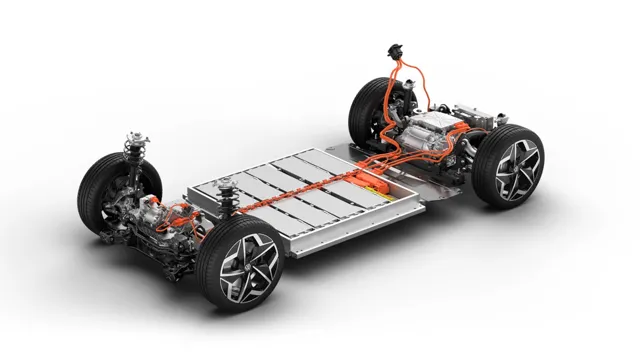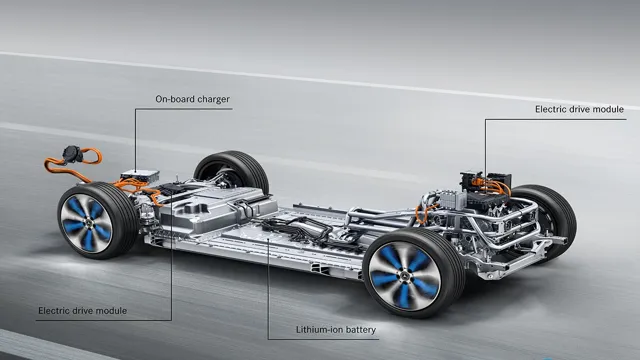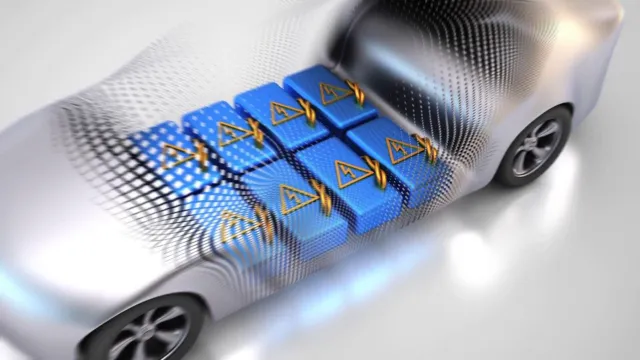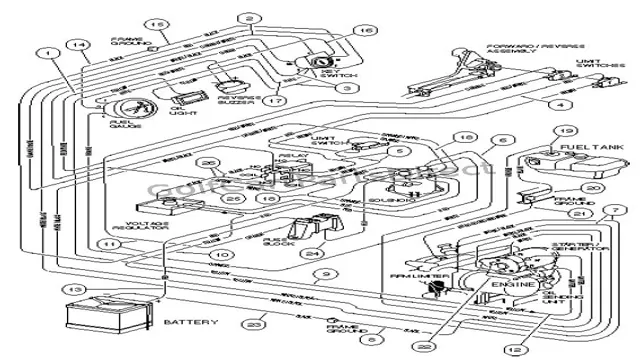Unmasking the Environmental Impact of Electric Car Battery Manufacturing on Our Planet
Electric cars are becoming increasingly popular due to their environmentally friendly nature and low operating costs. But while these vehicles help reduce emissions on the road, the manufacturing process of their batteries is incredibly polluting. Electric car battery manufacturing pollution is a significant concern for the industry, with studies showing that producing one kilowatt-hour of battery can emit up to 150 kilograms of CO
This amount of carbon emission is equivalent to driving a traditional gas-powered car for several weeks. In this blog, we will take a deeper look at the process of electric car battery manufacturing and the impact it has on the environment. We will also explore some alternatives that can help mitigate this issue and make electric vehicles truly sustainable.
Causes of Pollution
One of the major causes of pollution is the manufacturing of electric car batteries. While electric cars have become a popular alternative to traditional gas-powered vehicles, the process of creating the batteries that power them has a significant environmental cost. This is due to the mining of raw materials such as lithium, cobalt, and nickel, which can have devastating effects on the surrounding ecosystems.
Additionally, the manufacturing process itself involves the use of hazardous chemicals and produces considerable amounts of greenhouse gases. While electric vehicles are certainly a step in the right direction towards reducing our reliance on fossil fuels, it is important to acknowledge the impact of their production on the environment and work towards finding more sustainable solutions to powering our vehicles.
Raw Material Extraction
Raw material extraction is one of the leading causes of pollution across the globe. The process involves extracting materials from the earth, such as oil, coal, metals, and other minerals. These extractions often require extensive drilling, blasting, and burning, resulting in environmental damage and pollution.
The waste products from this process can contaminate soil, waterways, and the air, leading to serious health and environmental consequences. The release of chemicals and greenhouse gases into the atmosphere can contribute to climate change and respiratory problems. Additionally, the excess noise and dust generated from raw material extraction can disrupt local ecosystems and harm wildlife populations.
We must find more sustainable methods for extracting raw materials to mitigate the negative impact on our environment and the health of our communities. By implementing more eco-friendly techniques and investing in renewable resources, we can lessen the burden on our planet and create a brighter future for generations to come.
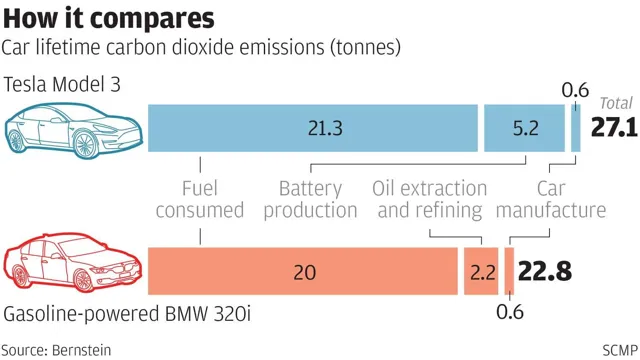
Battery Production and Transportation
Battery production and transportation play a critical role in our society’s shift towards electric vehicles. However, the process of producing and transporting batteries has significant environmental impacts that are often overlooked. One of the main causes of pollution in battery production is the chemicals used to create the battery cells, such as lithium and cobalt.
These chemicals are often mined using harmful methods that result in significant carbon emissions and environmental damage. Additionally, transporting batteries from production facilities to the final destination also leads to emissions from transportation vehicles. As electric cars become more prevalent, it is important to take these factors into consideration and find ways to minimize the environmental impact of battery production and transportation.
One solution could be to source materials from sustainable mines and use cleaner transportation methods such as electric trucks and ships. By considering these factors, we can ensure that the shift towards electric vehicles is not offset by the damaging effects of battery production and transportation.
Environmental Impact
Electric car battery manufacturing can have a significant environmental impact, particularly when it comes to pollution. One of the primary pollutants in battery manufacturing is carbon dioxide, which is released during the production of the battery’s various materials. These materials include the cathode, anode, electrolyte, and separator.
Other types of pollution can result from the mining of the materials needed to make the battery. This includes environmental destruction, water and air pollution, and the release of heavy metals into the environment. Some companies are working to mitigate these impacts by using more sustainable materials, reducing waste through recycling, and developing more efficient manufacturing processes.
However, it is important to consider the environmental trade-offs when making decisions about which vehicles to purchase or support. By choosing electric vehicles and supporting sustainable practices in battery manufacturing, we can help minimize the environmental impact of transportation.
Air and Water Pollution
The impact of air and water pollution on the environment is a complex issue that affects every living organism on Earth. From large-scale industrial factories to personal transportation emissions, human activities have produced pollutants that contaminate the air and water we rely on for survival. The consequences of pollution are devastating, with air pollution contributing to respiratory diseases and water pollution causing a myriad of health problems such as cancer and organ damage.
Furthermore, pollution has severe impacts on the environment including reducing biodiversity, deforestation, and accelerating climate change. It is vital that we take proactive measures to mitigate pollution, such as promoting renewable energy, reducing waste, and using sustainable transportation methods. We must all take individual responsibility for this issue and work towards a cleaner, healthier future for ourselves and the planet.
Land Use and Deforestation
Deforestation is a major environmental issue that is largely caused by human activities such as land use changes. Land use changes, primarily due to the expansion of agricultural lands and urban development, have been accelerating deforestation rates globally. The impacts of deforestation on the environment are extensive and detrimental.
Trees and forests provide critical ecosystem services, including air and water filtration, carbon storage, and habitat for biodiversity. Therefore, massive deforestation leads to soil erosion, flooding, climatic changes, and habitat loss, which can ultimately affect human health and wellbeing. It is essential to address deforestation through sustainable land management practices, such as reforestation and afforestation, and reducing unsustainable farming and grazing activities.
Only by working together can we preserve the natural ecosystems that support life on our planet.
Waste Management
Waste management is a critical aspect of mitigating the environmental impact of human activities. The amount of waste generated globally continues to rise, and this has a severe impact on the environment. Landfills, in particular, have a significant impact on human health due to their contribution to greenhouse gas emissions.
Recycling is a practical solution to this problem as it reduces the need for landfills and conserves resources. Poor waste management practices have been associated with unpleasant odors, flooding, pollution of water sources, and the spread of diseases, among other environmental hazards. Managing waste effectively involves taking charge of the waste generated and disposing of it responsibly.
By adopting sustainable waste management practices, we can significantly reduce our environmental impact and contribute to a healthier planet.
Solutions
Electric car battery manufacturing can cause pollution, but there are solutions to mitigate these negative environmental impacts. One solution is to implement more sustainable manufacturing processes that prioritize the use of renewable energy sources. This can include using solar or wind power to run the factories, and sourcing materials from sustainable producers.
Additionally, recycling and reusing batteries can significantly reduce the overall amount of waste produced. Manufacturers can also minimize pollution by investing in advanced filtration systems that capture harmful substances during the manufacturing process. Finally, governments can incentivize and regulate sustainable manufacturing practices through legislation and subsidies.
While electric car battery manufacturing can be a source of pollution, it is possible to minimize these negative impacts through a combination of technological innovation and strong environmental policy.
Recycling and Reusing Batteries
When it comes to recycling and reusing batteries, there are several solutions that can make a big difference for the environment. One solution is to participate in battery recycling programs offered by many retailers and recycling centers. These programs allow individuals to drop off used batteries, which are then collected and processed for their reusable materials.
Another solution is to invest in rechargeable batteries, which can be used multiple times before needing to be recycled. This not only reduces waste but also saves money in the long run. It’s important to be mindful of the type of batteries being used as well.
Lithium-ion batteries, which are commonly used in electronics, can be particularly harmful to the environment if not properly disposed of. By taking advantage of recycling programs and making conscious decisions about battery use, we can all do our part to help protect the planet.
Investment in Clean Energy
Investment in clean energy has become a hot topic in recent years as people have become increasingly concerned about the environmental impact of traditional energy sources. Fortunately, there are several solutions available that offer a more sustainable way forward. One popular option is solar power, which uses photovoltaic panels to harness the energy of the sun.
This technology is becoming more efficient and affordable, making it more accessible to homeowners and businesses alike. Wind power is another option, and it’s one that has been around for centuries. Modern wind turbines are highly efficient and can generate vast amounts of energy.
Other solutions include bioenergy, which turns organic waste into fuel, and geothermal power, which harnesses the heat of the earth. Each of these solutions has its own unique advantages and challenges, but together they form a comprehensive approach to a sustainable energy future. By investing in clean energy, we can create a more sustainable world for future generations.
Conclusion
In the race to find alternative sources of energy, the electric car has emerged as a promising contender in the fight against pollution. However, there’s no denying the fact that the manufacturing of electric car batteries leads to a significant amount of pollution. But, it’s a small price to pay when we consider the benefits of using electric vehicles in the long run.
In the end, reducing pollution is a collective effort that demands a comprehensive approach. So, let’s not forget to dispose of our batteries responsibly while we work towards a greener tomorrow.”
FAQs
What is the impact of electric car battery manufacturing on the environment?
Electric car battery manufacturing has been found to contribute to pollution, particularly in terms of greenhouse gas emissions and the extraction of minerals required for battery production.
How is the electric car battery manufacturing industry working to reduce pollution?
Many electric car battery manufacturers have made commitments to reduce their carbon footprint and are investing in renewable energy sources and more efficient production practices.
What are the alternatives to traditional electric car batteries that could reduce pollution?
Some companies are exploring alternative battery technologies, such as solid-state batteries and flow batteries, which could potentially be less environmentally damaging than traditional lithium-ion batteries.
What can consumers do to reduce their impact on the environment when driving an electric car?
Consumers can reduce the environmental impact of electric car battery production by choosing to buy from manufacturers who are committed to sustainable and ethical production practices, and by properly disposing of old batteries to avoid contaminating the environment.
